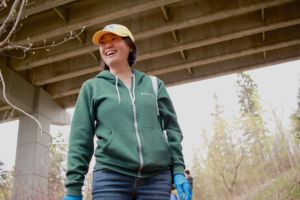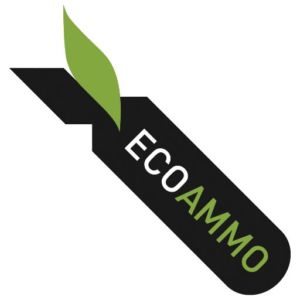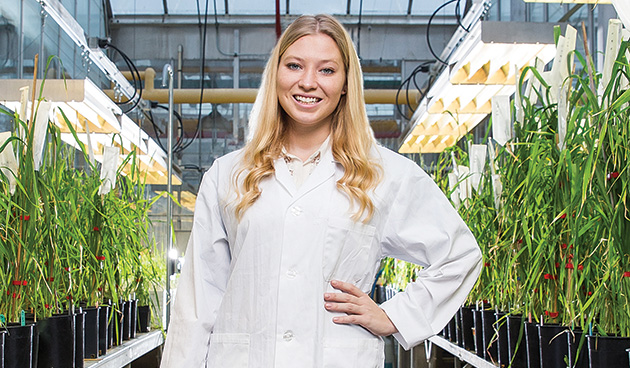[vc_row][vc_column width=”1/2″][vc_column_text]
Environmental Profiles of Candidates Running for Edmonton City Council
Name: Keren Tang
Ward: 11
View Map of Ward: City_Ward_Individual_Map_Ward_11
Why are you running for city council?
“I moved to Edmonton about five years ago to do my Master’s in Health Promotion. A big part of why I chose Edmonton was because I saw it as a growing city where I had a chance of making a real impact. After moving here, I got involved in advocacy on active transportation and the river valley, and I saw that my actions did have a real impact, which I found really empowering. But not everyone feels this [way]. I’m running for City Council because I want to make sure that more people feel their voices are heard. I want to make sure that diverse experiences reflected in our city are brought to the table when making policy decisions. I believe my health background brings an important perspective to the table.”
[/vc_column_text][/vc_column][vc_column width=”1/2″ el_class=”Profile Photo of Keren Tang. Source: https://www.facebook.com/kerentangyeg/photos/a.1813161512301971.1073741825.1813159325635523/1817352175216238/?type=1&theater”][vc_column_text]
Profile Photo of Keren Tang.
Source: https://www.facebook.com/kerentangyeg/photos/a.181316151230 1971.1073741825.1813159325635523/1817352175216238/?type=1&theater
[/vc_column_text][/vc_column][/vc_row][vc_row][vc_column][vc_column_text]What do you know about the way civic government operates?
“My understanding of our civic government comes from personal, community, and professional experiences. Our municipal government is responsible for areas including transit, roads[,] and city infrastructures including drainage and water, police service, [and] public services such libraries and recreation. Our City Council operates much like a board with a chair (Mayor) and board members (12 [Councilors]). They play a critical bridge-building role between the people who elected them to represent their interest and government decision-making and policy development. I’m familiar with the policy development process through my current work as a policy analyst with the provincial government. My professional background working with communities at the grassroots level has given me a deep appreciation for what it means to be a bridge between the local community and political decision-making. I have board governance experience through a number of organizations addressing health promotion, environmental conservation, multiculturalism, and girls empowerment. These experiences have equipped me with the skills and understanding needed to serve on City Council.”[/vc_column_text][/vc_column][/vc_row][vc_row][vc_column width=”1/2″][vc_column_text]
Photo Source: photo is from Mill Creek Ravine cleanup – provided by Keren Tang[/vc_column_text][/vc_column][vc_column width=”1/2″][vc_column_text]What do you want to focus on as a city councillor and how will you get it done?
“My focus is on healthy community, but health is determined by many factors, like education, transportation, social and physical environment, early childhood development, etc. We call these factors the ‘social determinants of health’. I would apply this lens to City decision-making, and I would apply my community engagement experience from working with Indigenous peoples, youth, and newcomer immigrants. My approach for any project is always starting at the grassroots level. It’s important for people in the community to identify issues, shape them, and discuss how they’d like their needs to be met. Meaningfully listening to people and incorporating their ideas into policies would allow us to bring everyday lives and experiences to the table at City Hall. Ultimately, I see myself more in a facilitator role as a [Councilor] working with communities, and less in a hierarchical leadership role. I want to politically engage the community. That’s how I think things get done.”[/vc_column_text][/vc_column][/vc_row][vc_row][vc_column][vc_column_text]How do environmental issues fit into your vision/plan as a potential city councillor?
“As a health promoter, I understand the impact of environment – both built and natural – on our health and wellness. I have been serving on the board of the North Saskatchewan River Valley Conservation Society (“NSRVCS”) for several years because of my passion for nature, the river valley, and green space. I would allocate resources to protect Edmonton’s river valley and other green spaces, supporting the vision of a Ribbon of Green. I have also been an active transportation advocate, helping to start the Edmonton Bike Coalition. Active transportation and conservation efforts all have an impact on our environmental responsibility as a city, reducing our carbon footprint, and curbing climate change. I’d like to see Edmonton as an environmental leader.”[/vc_column_text][/vc_column][/vc_row][vc_row][vc_column width=”2/3″][vc_column_text]What would having constitutional environmental rights (e.g. the right to clean air, clean water, safe food, to access nature, etc.) mean to you both personally, and as a city councillor?
“The environment plays such an important role in our health, so I see environmental rights tightly connected to health rights, and everyone has the right to live a healthy life. I think about my daughter, and I want to protect what natural environment we have for her and for future generations. Ultimately, having environmental rights would help us as private citizens to be better ecological stewards.”[/vc_column_text][vc_column_text]If elected city councillor would you support having Edmonton make a ‘Blue Dot Pledge”, joining the over 100,000 Canadians, and over 140 cities, declaring that your city “believes every Canadian deserves the right to a healthy environment”?
“Yes, I would take this pledge. However, I would go beyond this pledge by promoting programs and policies that support the right to a healthy environment.”
Where can people go to learn more about you and your campaign?
To learn more about me and my campaign, please visit my website (http://www.kerentang.ca), follow me on twitter (@kerentangyeg), look up my Facebook page (https://www.facebook.com/kerentangyeg/), or reach me by e-mail (kerentangyeg@gmail.com).[/vc_column_text][/vc_column][vc_column width=”1/3″][vc_column_text]
Keren Tang with her husband and daughter.
Photo Source: http://www.kerentang.ca/about
[/vc_column_text][/vc_column][/vc_row]



 [/vc_column_text][/vc_column][/vc_row][vc_row][vc_column][vc_column_text]–I think the Alberta government just started using the words ‘climate change’ about 600 days ago. In the previous conservative government we could not say climate change. But thankfully this has changed, the government is only now addressing the issue. Also, we [the people] are still so polarized in how we talk, and we don’t challenge our government. We don’t see the major challenges that will become more common from an environmental health and wellness issue. We just don’t see it in ‘our backyard’ we haven’t felt it first hand enough yet.”
[/vc_column_text][/vc_column][/vc_row][vc_row][vc_column][vc_column_text]–I think the Alberta government just started using the words ‘climate change’ about 600 days ago. In the previous conservative government we could not say climate change. But thankfully this has changed, the government is only now addressing the issue. Also, we [the people] are still so polarized in how we talk, and we don’t challenge our government. We don’t see the major challenges that will become more common from an environmental health and wellness issue. We just don’t see it in ‘our backyard’ we haven’t felt it first hand enough yet.”
